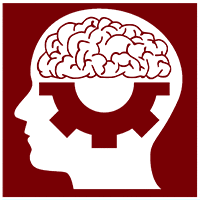
Instructor: Joshua Tenenbaum
Course Numbers: 9.66J, 9.660, 6.804J
Course Level: Graduate, Undergraduate
Prerequisites: (MIT) 9.40, 6.008, 6.036, 6.041B, 18.05, or permission of instructor
Course Website: http://cbmm.mit.edu/lh-computational-cognitive-science
Course Description:
Introduction to computational theories of human cognition and computational frameworks that could support human-like artificial intelligence (AI). The central questions are, what is the form and content of people’s knowledge of the world across different domains, and what are the principles that guide people in learning new knowledge and reasoning to reach decisions based on sparse, noisy data? The course surveys recent approaches to cognitive science and AI built on these principles:
- World knowledge can be described using probabilistic generative models; perceiving, learning, reasoning, and other cognitive processes can be understood as Bayesian inferences over these generative models.
- To capture the flexibility and productivity of human cognition, generative models can be defined over richly structured symbolic systems such as graphs, grammars, predicate logics, and most generally probabilistic programs.
- Inference in hierarchical models can explain how knowledge at multiple levels of abstraction is acquired.
- Learning with adaptive data structures allows models to grow in complexity or change form in response to the observed data.
- Approximate inference schemes based on sampling (Monte Carlo) and deep neural networks allow rich models to scale up efficiently, and may also explain some of the algorithmic and neural underpinnings of human thought.
We introduce a range of modeling tools, including core methods from contemporary AI and Bayesian machine learning, as well as new approaches based on probabilistic programming languages. We show how these methods can be applied to many aspects of cognition, including perception, concept learning and categorization, language understanding and acquisition, common-sense reasoning, decision-making and planning, theory of mind and social cognition. Lectures focus on the intuitions behind these models and their applications to cognitive phenomena. Recitations fill in mathematical background and provide hands-on modeling guidance in several probabilistic programming environments, including Church, WebPPL, and PyMc3.

